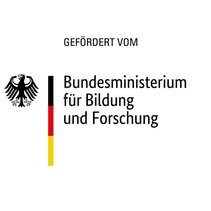SMART-study
Self-Management At oRgan Transplant centersThis page introduces the SMART-study. This research project addresses the self-management of patients following solid organ transplantation. You can find further detailed information regarding the research project below.
Project description
Background
Sometimes people become so unwell that their organs fail. Often these problems affect the so-called ‘solid organs’ such as the liver, kidneys, lungs, heart, pancreas and small intestine. One treatment option is to transplant an organ from another person. This procedure requires lifelong follow up treatment. Affected people have to make many changes in their lives after transplantation to prevent infection and rejection of the transplanted organ. They need to take on new responsibilities, learn new skills and change their behaviour. All these changes are known as ‘self-management’. Self-management describes the ability to deal with all the issues which come with a health problem.
Research studies indicate that many people have problems with self-management after organ transplantation and/or do not possess the necessary skills. As a result, they are unable to carry out important tasks. For this reason, transplant recipients require support. This support may come from family and friends, other affected patients and/or from health professionals. Although there are isolated studies which describe interventions to support self-management in recipients of certain solid organs, no overarching support concept could be found which reviewed all the areas of the transplant recipient’s life or all support options.
Aim of the project and methodology
In this research project, we aim to develop and test a program which can support people in their self-management following organ transplant. The patients obtain knowledge and skills which help them to protect the transplanted organ. All affected people (patients, family, friends and professionals) are included.
Team



Paulina Staus MSc
Scientific employee
Supervision

Prof. Dr. rer. biol. hum. Christiane Kugler

Dr. Alexander Wünsch
Collaboration
University of Freiburg Institute for Evidence in Medicine (IfEM)
Bundesverband der Organtransplantierten e. V.
Arbeitskreis Transplantationspflege (AKTx-Pflege)
International Transplant Nurses Society
Europäische Akademie für Pflegekräfte in der Transplantation (EUCAT)
Jobst, S., Stadelmaier, J., Zöller, P., Grummich, K., Schmucker, C., Wünsch, A., Kugler, C., & Rebafka, A. (2023). Self-management in adults after solid-organ transplantation: A scoping review protocol. BMJ Open, 13(1), e064347. https://doi.org/10.1136/bmjopen-2022-064347
Brunner, K., Weisschuh, L., Jobst, S., Kugler, C., & Rebafka, A. (2024). Defining Self-Management for Solid Organ Transplantation Recipients: A Mixed Method Study. Nursing Reports, 14(2), 961–987. https://doi.org/10.3390/nursrep14020073
Jobst, S. (29. September 2022). SMART-Studie—Forschungsprojekt zum Selbstmanagement nach solider Organtransplantation [Vortrag]. 26. Symposium des AKTX-Pflege e. V. im Rahmen der 31. Jahrestagung der Deutschen Transplantationsgesellschaft, Erlangen.
Jobst, S., Sworn, K., Wünsch, A., Kugler, C., & Rebafka, A. (16. September 2023). P096—Self-management aspects in adults after solid organ transplantation: A scoping review [EPoster]. ESOT Congress 2023, Athen. http://dx.doi.org/10.13140/RG.2.2.24758.47685
Förderung
This research project is supported by the Federal Ministry of Education and Research (BMBF)



